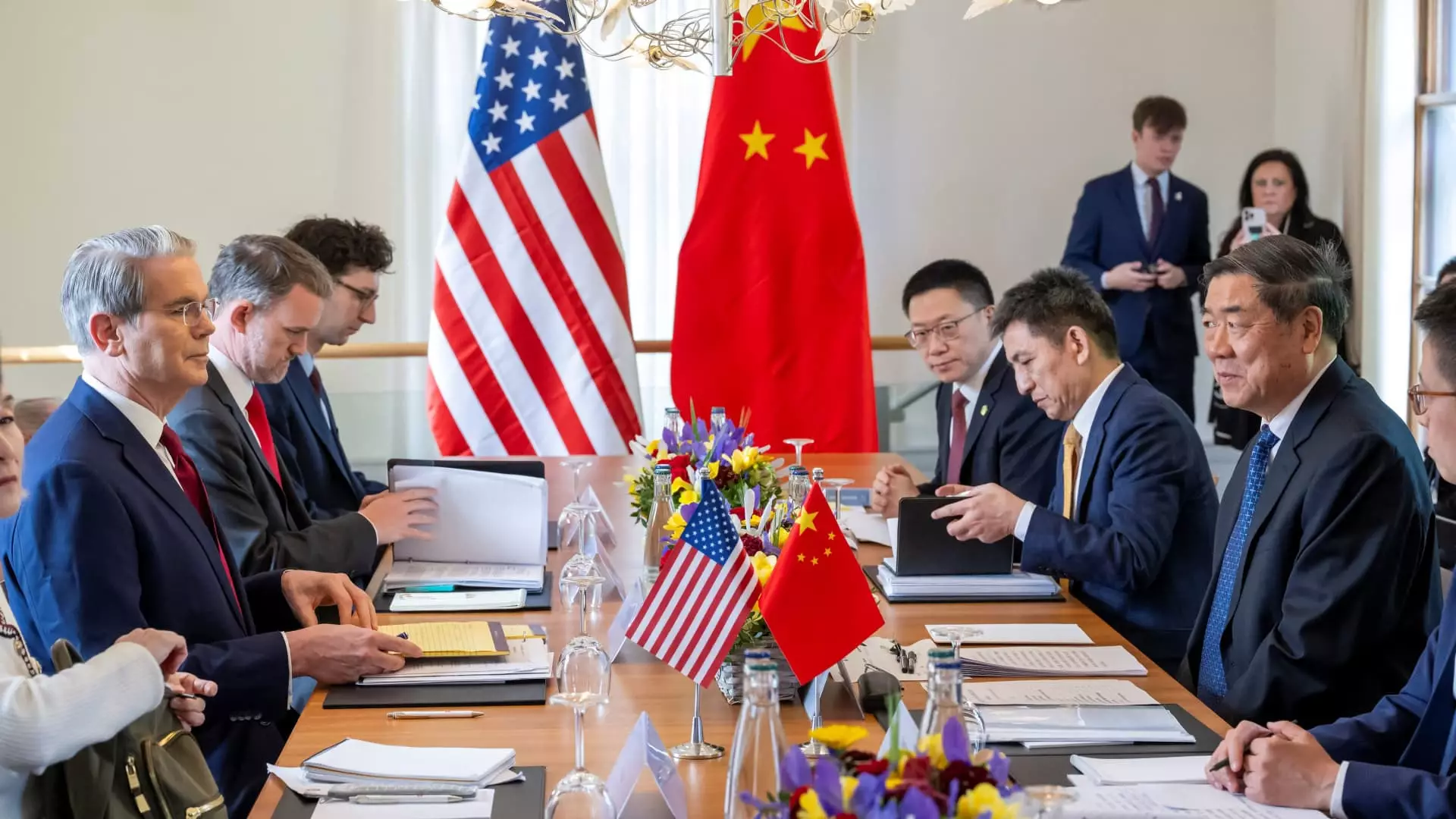The relationship between the United States and China has always been fraught with tension, but recent events have showcased just how fragile these ties truly are. A preliminary trade agreement was reached with much fanfare, suggesting a significant step toward resolving long-standing disputes. However, the very foundations of this agreement are being threatened by unilateral actions from the U.S. government, which not only undermine the deal but also reflect a broader tendency toward protectionism.
On Monday, China’s Commerce Ministry unleashed a sharp critique of the Trump administration, accusing it of backtracking on the initial compromises that were made in negotiations. This reaction stems from the U.S. issuing a warning against using Chinese semiconductors, particularly targeting Huawei. Such measures seem to demonstrate a growing disregard for the agreed-upon principles of the trade talks—a fact that should concern any observer who hopes for a stable global economy.
A Question of Fairness and Integrity
Beijing’s response was robust, labeling the American advisory as “discriminatory” and “market distorting.” These descriptors are not merely hot air; they highlight a crucial aspect of international trade that is often overlooked: fairness. China’s insistence that the U.S. should “correct its mistakes” was a clear indication that the perception of integrity in negotiations is paramount. When one country leverages its power to impose unilateral restrictions, it not only destabilizes mutual trust but also risks fracturing the fundamental essence of a multilateral trading system based on shared rules and standards.
The warning issued by the U.S. described the Chinese chips as potentially produced in violation of export controls. This assertion raises questions: Are we truly promoting fair competition based on merit, or are we simply stifling rivals? It appears that some U.S. policymakers believe they are safeguarding national security while ignoring the broader implications of these actions on global trade dynamics.
The Dangers of Overreach
China’s assertion that the U.S. is engaging in “typical unilateral bullying behavior” is an opinion that may resonate with many liberal observers. The rhetoric surrounding this conflict often skews toward nationalistic posturing, where domestic politics take precedence over international collaboration. The Chinese spokesperson’s claims that the U.S. measures could jeopardize the global semiconductor supply chain only reinforces the idea that unilateralism, marked by the imposition of export controls and market distortions, ultimately serves to isolate rather than elevate the competitive standing of American industry.
Moreover, in the intricate web of global supply chains, any action that threatens stability can have ripple effects far beyond the immediate jurisdiction. In this context, the U.S. risks exacerbating technological decoupling, threatening innovations and advancements not only in China but across the world. The reality is that a collaborative approach could foster growth and innovations beneficial to both nations.
Will America Shoot Itself in the Foot?
As U.S. Commerce Secretary Scott Bessent recently remarked on the “constructive” nature of talks, one must ponder what happens when “constructive” clashes with aggressive posturing. The possible backtracking on tariffs could, in theory, present a more favorable outcome, yet such optimistic perspectives may not hold if the U.S. continues down this route of hostility against Chinese technology.
The assertion that this era of protectionism could lead the U.S. to “shoot itself in the foot” is particularly poignant. Economically, America’s interests cannot be effectively served by isolating itself from the innovations that are penetrating the global landscape. Sticking rigidly to populist narratives does little to address underlying economic realities and could very well lead to self-inflicted setbacks that are preventable.
The dynamics at play allow us to reflect on a deeper truth: global interdependence in trade means recognizing that cooperation may yield more benefits than confrontation. Yet, with the current trajectory of U.S.-China relations, it seems that the path to mutual understanding is tangled in a web of politicized decisions and economic machinations that often prioritize short-term gains over visionary, long-term strategies.


Leave a Reply